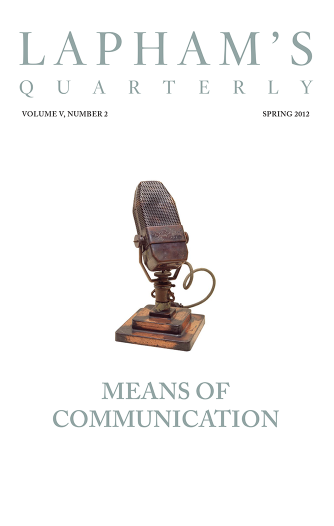As Alexander traversed all Babylonia, which at once submitted to him, he was most of all amazed at the chasm from which fire continually streamed forth as from a spring, as well as at the stream of naphtha, so abundant as to form a lake, not far from the chasm. This naphtha is in other ways like asphalt but is so sensitive to fire that before the flame touches it, it is kindled by the very radiance about the flame and often sets fire also to the intervening air. To show its nature and power, the barbarians sprinkled the street leading to Alexander’s quarters with small quantities of the liquid; then, standing at the farther end of the street, they applied their torches to the moistened spots, for it was now getting dark. The first spots at once caught fire, and without an appreciable interval of time, but with the speed of thought, the flame darted to the other end, and the street was one continuous fire.
Now, there was a certain Athenophanes, an Athenian, one of those who were accustomed to ministering to the person of the king when he bathed and anointed himself and to furnishing suitable diversion for his thoughts. Once, when a youth named Stephanus, who had a ridiculously plain countenance but was a graceful singer, was standing by Alexander in the bath, Athenophanes said, “Should we, Your Majesty, make a trial of the liquid upon Stephanus? If it should lay hold of him and not be extinguished, I would certainly say that its power was invincible and terrible.” The youth also, strangely enough, offered himself for the experiment, and as soon as he touched the liquid and began to anoint himself with it, his body broke out into so great a flame and was so wholly possessed by fire that Alexander fell into extreme perplexity and fear. Had it not been by chance that many were standing by holding vessels of water for the bath, the youth would have been consumed before aid reached him. Even as it was, they had great difficulty putting out the fire because it covered the boy’s whole body, and after they had done so, he was in a sorry plight.
It is natural, then, that some who wish to bring fable into conformity with truth should say that this naphtha is the drug Medea used, when, in the tragedies, she anoints the crown and the robe. It was not from these objects themselves, they say, nor of its own accord, that the fire shot up, but a flame was placed near them that was then so swiftly drawn into conjunction with them that the senses could not take cognizance of it. The rays and emanations of fire that come from a distance impart to some bodies merely light and warmth, but in those that are dry and porous or that have sufficiently rich moisture, they collect themselves together, break into fierce flame, and transform the material.
There has been much discussion about the origin of this naphtha and whether the liquid substance that feeds the flame flows out from a soil that is rich and productive of fire. The soil of Babylonia is very fiery: grains of barley often leap out of the ground and bound away, as if its inflammation made the ground throb, and the inhabitants, during the hot season, sleep on skins filled with water. Harpalus, when he was left as overseer of the country and was eager to adorn the royal gardens and walks with Hellenic plants, succeeded with all except ivy; the soil always killed it. The plant could not endure the temper of the soil, which was fiery, whereas the plant was fond of coolness.
From Parallel Lives. Plutarch was born to a wealthy family in Boeotia around 46 and studied under the philosopher Ammonius in Athens, eventually becoming an Athenian citizen. Exemplifying “the pre-ideological origins of the form” of biography, according to the critic Lance Morrow, Plutarch compared pairs of famous Greeks and Romans with an emphasis on moral character; the Victorian scholar Arthur Hugh Clough criticized his “passion for anecdote.” Plutarch admits the difficulty of the historian’s task, writing that “scarcely anything is asserted by one that is not called into question or contradicted by the rest.”
Back to Issue



